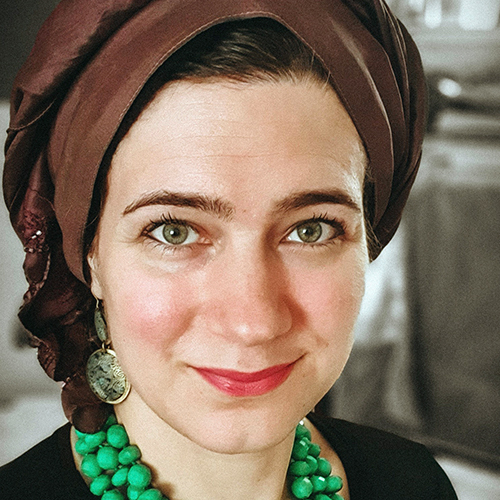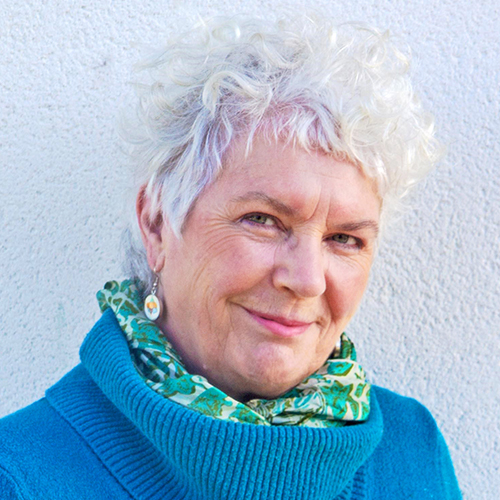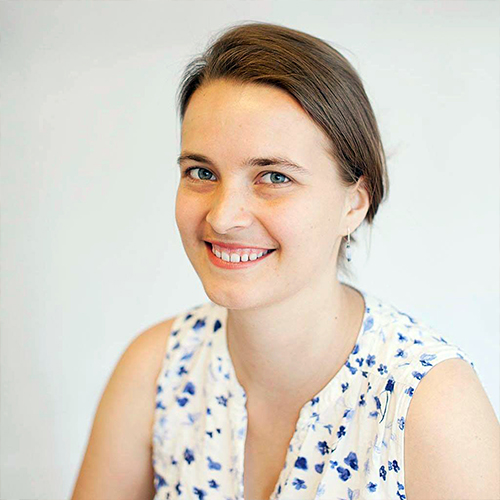

Annet Mulder became interested in breastfeeding when she became a mother in 2000. During and because of her own breastfeeding experiences, in 2002 she became a volunteer at the Dutch breastfeeding organisation. In 2008 she passed her exam and started working as an IBCLC in a BFHI hospital in the Netherlands. In 2011 she started her private practice. Annet has spoken on several symposia and conferences. Teaches different subjects to lactation consultants in training and is vice president at the Dutch Association of IBCLC’s. (NVL)
If a woman wants to induce their milk supply after a separation or interruption of breastfeeding, she needs support. A lot of support! There are different angles to look at; latching on again and bringing back a sufficient milk supply. But success is not guaranteed…With dedication and preparation, breast-feeding without pregnancy (induced lactation) might also be possible. Annet will discuss different options and will use her experiences with mothers in this topic.
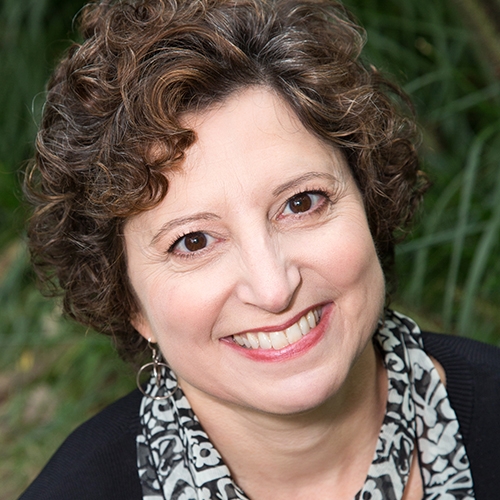
ReLATCHtation: Transitioning the Exclusively Bottle-fed Baby to Nursing

Alyssa has been helping parents and babies with breastfeeding since 2002, first as a La Leche League Leader and since 2009 as an International Board Certified Lactation Consultant.
Alyssa works in private practice serving clients worldwide, primarily through telehealth. She is the author of Breastfeeding Without Birthing: A Breastfeeding Guide for Mothers Through Adoption, Surrogacy, and Other Special Circumstances and a professional supplement to the book, The Breastfeeding Without Birthing Professional Pack online training.
Alyssa has authored articles for The Journal of Human Lactation: The Three Step Framework for Inducing Lactation and Successful Co-Lactation by a Queer Couple: A Case Study. She has also authored articles for La Leche League’s Leader Today and Breastfeeding Today magazines, and Adoptive Families magazine. She is an international speaker on the topics of inducing lactation, relactation, and other related topics. Alyssa is the proud mother of three breastfed children, two by birth and one by adoption. She lives in St. Louis, Missouri, USA.
Topic: Demystifying Inducing Lactation: How Lactation Happens Without Pregnancy and Birth - [View Abstract]
Topic: ReLATCHtation: Transitioning the Exclusively Bottle-fed Baby to Nursing - [View Abstract]
Topic: Supplementation: A Goldilocks Dilemma - [View Abstract]
Topic: The Proficient Pumper - [View Abstract]
Newborn babies are hardwired for breastfeeding: their newborn instincts direct them to latching at the breast/chest. But what about older babies who are currently exclusively bottle-feeding – can they learn to nurse too? A birthing parent may wish to initiate or resume breastfeeding after choosing not to breastfeed or discontinuing breastfeeding. An adoptive or foster parent may be placed with an older baby or toddler whom they wish to nurse. With patience, persistence, support, and some tools and tricks, it can be possible. This presentation discusses how to know if baby is ready to breastfeed, setting the stage for success, and the process of gentle transitioning from bottle to breast/chest.

View Details / Enroll
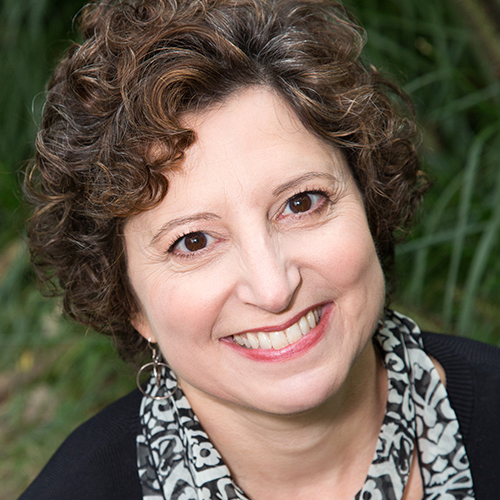
View Details / Enroll
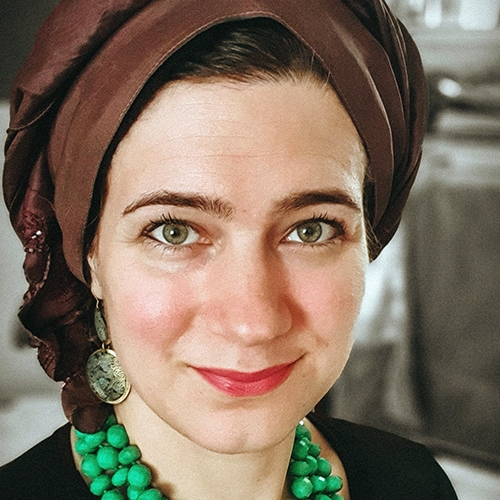
Research Ethics & Infant Feeding: How to Utilise the Four 'D's of a Brief Assessment

Zainab Yate is a Biomedical Ethicist, with a specialist interest in infant feeding. Zainab is Vice Chair and named qualitative lead on a paediatric flagged Research Ethics Committee Panel for the Health Research Authority (HRA) in the UK, reviewing research protocols for over a decade. Zainab's previous working background is in Public Health and Commissioning the National Health Service (NHS) in the UK. She had also been a volunteer breastfeeding peer supporter with the NHS for a number of years, is the owner-author of the resource site for mothers and healthcare practitioners on Breastfeeding / Nursing Aversion and Agitation and author of "When Breastfeeding Sucks".
Topic: Breastfeeding / Nursing Aversion and Agitation (BAA) in breastfeeding mothers - [View Abstract]
Topic: Navigating the Future: Bioethical Challenges in Anticipated Integration of AI in Lactation and Breastfeeding Services - [View Abstract]
Topic: Research Ethics & Infant Feeding: How to Utilise the Four 'D's of a Brief Assessment - [View Abstract]
Research ethics institutions protect the rights, safety, dignity, and well-being of research participants, and also have a duty to ensure ‘good’ research. Conducting poor research is unethical, and there are many studies in the field of breastfeeding and lactation that have been challenged when published, simply because their findings and results are, at best, incorrect. Proper definitions, project design and industry conflict of interest are important factors, and these can be critiqued and challenged at the ethical review stage.
Participants will learn how to use the method of the '4 Ds of a Brief Assessment' to scrutinise the research questions, definitions of words used, disclosures and even the research methodology to decide if a study will have both scientific and ethical merit in the field of breastfeeding and lactation. If you are a donor, an applicant, a manager or a researcher you need to be aware of the process of ethical review of research protocols, the possibility of specialist review, and also of how to sift through published studies that have questionable study designs, and the findings.

Research Review: What the Evidence Tells Us About Improving Breastfeeding Outcomes

Wilai Rojjanasrirat, PhD, RN, IBCLC, FILCA, FAAN is a Professor and Director of Research and Scholarship at Graceland University’s School of Nursing in Independence, Missouri. Her background is in midwifery and maternal and child health nursing.
She is an international board certified lactation consultant. She earned her Bachelor’s in Nursing and Midwifery from Thailand and Master’s and Doctorate and Post-Doctorate in Nursing from the University of Kansas. She teaches in graduate nursing program. Her research focuses on promoting and supporting breastfeeding, psychometric development, and educational outcome evaluation.
Using telehealth in providing lactation support, evaluation of the breastfeeding outcomes among late-preterm, near term, and term infants, and evaluation of the Business Case for Breastfeeding Program’s impact among employed breastfeeding mothers in Kansas are among some of the research projects.
Dr. Rojjanasrirat has multiple publications and recently contributed to a book chapter on Employment and Breastfeeding in Wambach & Spencer, Breastfeeding and Human Lactation, 6th edition in 2021. She served as a former president of the Pi Eta Chapter of the Nursing Honor Society, a board member of the KC Board of Directors of Kansas City, Kansas, and a former president of the Greater Kansas City Lactation Consultant Association for several years.
Topic: Understanding Lactation-Related Research - [View Abstract]
Despite the many benefits of breastfeeding to both mothers and infants, the majority of women are unable to reach the recommendations of the World Health Organization of exclusive breastfeeding for the first 6 months of life and continued breastfeeding for two years or longer. It's important for health care professionals to stay up to date with the latest research to always ensure that the care they're providing is in line with current best evidence.
This presentation will present the results of a research review on the effectiveness of interventions to improve breastfeeding outcomes. A database search including PubMed, Cochrane, and CINAH were conducted to identify systematic review and meta-analysis studies in English that focused on breastfeeding interventions that addressed breastfeeding outcomes in full-term healthy newborns from 2012 to 2022. Learn more about the which breastfeeding interventions are backed by strong evidence, quality issues in certain studies, and the implications for further research.

View Details / Enroll


Cecília Tomori is Associate Professor and Director of Global Public Health and Community Health at the Johns Hopkins School of Nursing with a joint appointment at the Johns Hopkins Bloomberg School of Public Health. She is a Hungarian American anthropologist and public health scholar whose work investigates the structural and sociocultural drivers that shape health, illness and health inequities. Dr. Tomori is an internationally recognized expert on breastfeeding, infant sleep and maternal child health.
During the COVID-19 pandemic, she has supported numerous organizations focused on maternal child health and health equity and advocated for equitable pandemic policies. She has authored three books on breastfeeding and reproduction, and published numerous articles on a range of public health and anthropological topics.
Topic: Resolving Cultural Conflicts in Nighttime Breastfeeding and Infant Sleep - [View Abstract]
Nighttime breastfeeding and proximate mother-infant sleep play a crucial role in sustaining lactation but present challenges for parents in settings where solitary infant sleep is the norm, and bedsharing is viewed as controversial and inherently dangerous. While separate parent-child sleep arrangements are a relatively recent cultural invention, they have become the dominant cultural norm, which also shapes medical infant sleep guidance in the U.S. and other similar settings. Recent breastfeeding promotion efforts, however, conflict with these cultural and medical imperatives for separate sleep. As more parents breastfeed, they find themselves falling asleep next to their babies. Some may fall asleep on unsafe surfaces in their attempt to avoid bedsharing, while others regularly bedshare in secret to avoid social stigma and other repercussions. To ensure both safety and wellbeing for infants and families, an integrated approach to nighttime breastfeeding and infant sleep will be recommended that incorporates evolutionary and cross-cultural perspectives.

View Details / Enroll

View Details / Enroll

Resolving Ethical Dilemmas Using a Qualitative Study and Case Examples

Joy Noel-Weiss RN IBCLC is an assistant professor in the School of Nursing, Faculty of Health Sciences, University of Ottawa. Dr. Noel-Weiss researches breastfeeding and human lactation. Professor Noel-Weiss' doctoral research study was titled Relationship Between Intravenous Fluids Given to Women During Parturition and Their Breastfed Newborns' Weight Loss. Her Masters' research was a randomized controlled trial testing a prenatal breastfeeding workshop designed to increase maternal breastfeeding self-efficacy. For future research, Dr. Noel-Weiss is developing tools to measure infant feeding patterns and to measure clinicians' confidence in their ability (i.e., their self-efficacy) to support individuals who choose to breastfeed.
In addition to these quantitative studies, Dr. Noel-Weiss recently completed qualitative research about ethical dilemmas and lactation consultants and about mothers' experiences using baby scales in their homes. Currently, Dr. Noel-Weiss works with a research team as the principal investigator on a research study titled Transmasculine Individuals' Experiences with Pregnancy, Birthing and Feeding Their Newborns. The study is funded with an operating grant from the Canadian Institutes of Health Research - Institute of Gender and Health.
Dr. Noel-Weiss chairs the International Lactation Consultants Association's Ethics and International Code Committee and co-chairs the uOttawa School of Nursing's working group for joint appointees and adjuncts. She has a cross appointment to the Ottawa Hospital and is a member of The Ottawa Hospital Nursing Research Work Group. Recently, Dr. Noel-Weiss became a member of the Champlain Maternal Newborn Regional Program's Breastfeeding Promotion Committee.
In this session, Professor Noel-Weiss explains and defines bioethics, principles of bioethics, and ethical dilemmas. She presents results from her research study about IBCLCs and ethical dilemmas and uses case studies to demonstrate how to identify and resolve ethical dilemmas.
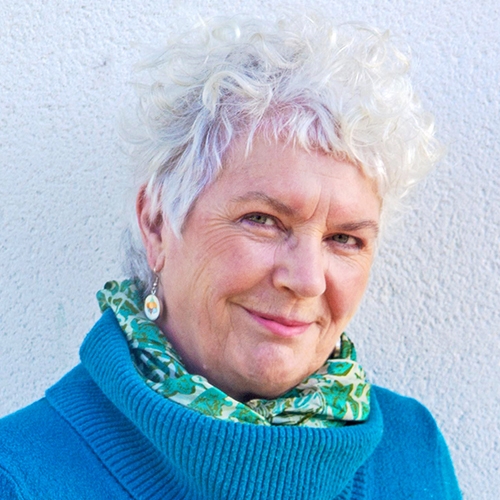
Resolving Labour Dystocia Through Improved Understanding of Birth Biomechanics

Molly O’Brien is an experienced midwife, with more than 20 years of clinical practice and has attended over a thousand births. She is also a hypnobirth and birth preparation teacher, an associate university lecturer, has created courses for midwives, campaigned for midwife led birth units and been a passionate student and enabler of normal physiological birth. She has worked in all areas of midwifery. Her favorite work was in the home environment and a Midwife Led Birth Unit. It allowed her to attend hundreds of undisturbed physiological births. It also gave her the opportunity to make a systematic exploration of midwifery skills and observations that can help resolve long difficult labours caused by a suboptimal position. The techniques and strategies that emerged from this time helped her revolutionize her own practice. She began to regularly witness dramatic progress as she put them to use in “difficult labours”. Now she teaches the course she developed for Birth Professionals, ‘Biomechanics for Birth’. She also taught for a master's course at the City of London College and runs a 3000 strong Facebook group Biomechanics for Birth for birth and women’s health professionals that carries a lively and informed discussion on a wide range of women's health issues.
In order to resolve labor dystocia in an effective and holistic manner, a deeper understanding of pelvic anatomy and physiology is required. Pelvic dynamics, the mechanical relationship between the pelvis and the rest of the body, and the dynamic interaction of the mother/baby dyad offer the chance to view birth through different eyes. This knowledge can help the health care provider to recognise activities and lifestyles that increase the chances of labour dystocia. Furthermore, this understanding will help providers identify signs of a mechanical disruption during the birth process. This presentation will offer timely techniques and positions, based on the principles of biomechanics, that increase space in the pelvis and avoid medical intervention.

View Details / Enroll
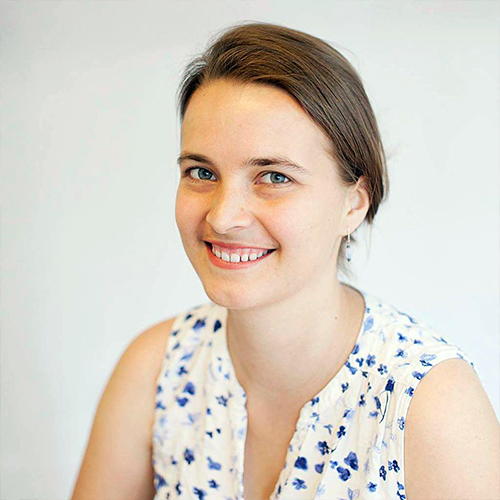

Molly Dutton-Kenny is an American & Canadian midwife. Trained in the USA in community homebirth midwifery, she now makes Canada her home and practices as a Registered Midwife with her loving family & community. She supports education for midwifery students through National Midwifery Institute, and community education around full spectrum pregnancy loss and abortion, respectful pelvic exams, and midwifery-based management and support of these experiences, centering home and holistic medicine as options for most people. You can read more about her work at www.mollyduttonkenny.com.
Pelvic Exams are so commonplace in midwifery practice that we often fail to appreciate their significance in our client’s lives. Pelvic exams have the potential for both trauma and trust-building in the midwife-client relationship.
Trauma manifests in our clients lives and bodies in a myriad of ways. Statistically, a majority of our clients have experienced various direct traumas in their lives, with a significant portion focused on pelvic trauma & assault. Additionally, clients hold the epigenetic trauma from historical wrongs in gynecology and treatment of bodies in various lineages as a result of white supremacy and toxic patriarchy.
All bodies deserve respectful care. When done carefully, pelvic exams have the potential to be safe, trust-building experiences with the benefit of seeking key medical information. Together, we will interrogate the common pelvic exam from a trauma-informed lens and consider our practices carefully. We will build strategies for respectful pelvic exams, including managing pain & anxiety in clients, what to do when clients do (and don’t!) disclose past trauma, avoiding triggers, and consider modifications to our own practices.

Responsive Breastfeeding: The Key to Optimal Infant Development

Martina Donaghy is a registered midwife of 30 years, an IBCLC of 22 years and a Senior Midwifery Lecturer of 17 years’ experience. During the past two decades her main posts as a hospital based Infant Feeding Specialist and a Midwifery Lecturer has seen a focus on educating registered midwives, student nurses, midwives, paediatric and Specialist Community Public Health nurses on the importance of breastmilk and breastfeeding, ensuring these students are equipped to support the breastfeeding mother in achieving her feeding goals. Martina has led and supported her university to achieve successful UNICEF UK Baby Friendly accreditation for the BSc Midwifery and Specialist Community Public Health Nursing programmes. She also teaches on the Midwifery Master’s program specialising in the promotion and support of physiological birth, breastfeeding, biological nurturing, and maternal, infant attachment. Recent publications include a chapter in Examination of the newborn and neonatal health, titled Helping parents make decisions regards to infant feeding and cosleeping. Her most recent midwifery article focused on supporting maternal and infant physiology after birth. She is originally from Australia and has resided in the United Kingdom for 30 plus years.
From the moment of conception, maternal and fetal physiology is intrinsically linked in a synergistic partnership, with optimal infant development dependent on this relationship continuing well into the infants first 1001 days. A key pivotal facet of this reciprocal relationship is responsive breastfeeding. Responsive breastfeeding is far more than a way of infant feeding, but a sensitive synchronous parenting style that secures optimal growth, nutrition, immune development, infant /maternal attachment, whilst fostering successful lactation and the development of positive feeding habits well into infancy. This presentation will explain what is meant by responsive breastfeeding, exploring the science behind how this type of feeding promotes optimal infant health.
The presentation will conclude with an exploration of the wider benefits of responsive breastfeeding, examining the possibility of this type of feeding style contributing to improving several public health issues, in particular childhood aversity and obesity. Lastly, recommendations for promotion and support of responsive breastfeeding will be outlined.
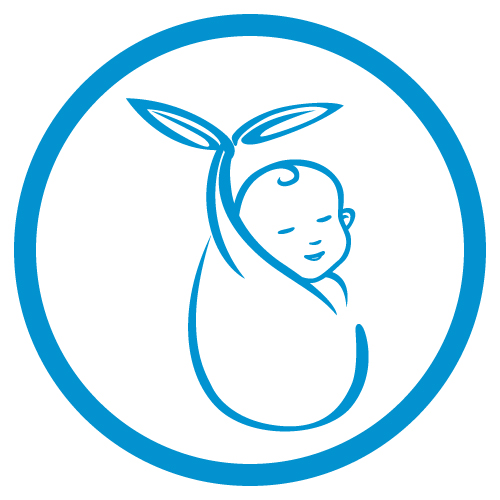
View Details / Enroll

Rethinking Surgical Tools - Infant Frenotomy & Pain

Effath Yasmin is India's leading Biodynamic Craniosacral Therapist, an award winning International Board Certified Lactation Consultant & a Documentary Film Maker. She is also an International Speaker, an Author & a Bach Flower Practitioner.
Her special interests lie in Infant Oral, Sucking & Airway Dysfunction, Tongue Tie, Birth Trauma, Craniofacial Development and a range of chronic physical and mental dis-eases & quantum energy phenomenon. She applies these sciences into Life Coaching, Inner Child Healing and Parenting. Her approach stems from fundamental truth of human organism is complete and self-regulatory and treatment & counselling approach is by deep listening & true empathy to mind body and spirit rather than by intervention.
She currently sits on several national & international professional boards.
She has spear-headed & dedicated her life to many projects with a central mission of advocacy, education and awareness for integrative multidisciplinary wellness approach worldwide. Her work has been published in the International Journals & a textbook and she writes extensively on print and digital media on the subjects of Breastfeeding, Tongue Tie, Parenting & Health related subjects.
Her international award winning film 'Untying Breastfeeding' exposes the glaring unseen obstacles to Birth & Breastfeeding & early parenting that can help restore motherhood and has been widely celebrated over 1500 Cities worldwide. She is currently pursuing her Ph.D. in Metaphysical Sciences.
Topic: Rethinking Surgical Tools - Infant Frenotomy & Pain - [View Abstract]
Topic: Trauma Informed Care in Clinical Infant Oral Assessment: Understanding Body Autonomy - [View Abstract]
Ankyloglossia (tongue tie) impacts and can impair normal oral function in infants leading to a myriad of complications with breastfeeding. Increased awareness of this impact has led to increased diagnosis and treatment of tongue tie through frenotomy/frenectomy. These procedures are typically completed using one of two tools: scissors or laser and sometimes cautery. While the methods are equally effective when completed by a competent practitioner, the blood coagulation of the surgical incision made by a laser is cited as an major advantage in laser surgeries along with great advantage of visibility at the surgical site by the surgeon. Therefore laser release is widely perceived as superior to scissors in the recent development in LASER FRENECTOMIES.
There has been very little research that has been published on the post-procedural effects of surgical tool used. In her practice, the author has noted significant and consistent patterns in post-procedure pain, correlating to which tool is used for the release. This presentation attempts to highlight that it is critical we study the scale of pain experienced by infants post frenotomy in correlation to tool of surgery since Pain affects babies' nervous systems potentially changing the structure and physiology of the nervous system and be a cause of problems with sleep, feeding, and self-regulation. The Author will review specific data measurements that demonstrate these patterns, and present a theory for potential reasons of prefering one tool over the other for low risk Infant Frenotomies.







